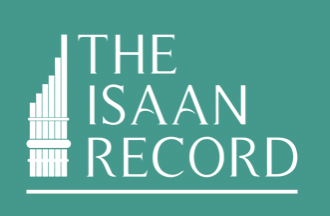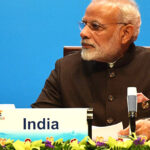
In late August, Thailand’s House of Representatives passed the draft budget for the next fiscal year, which begins in October. The 3.1 trillion baht budget is soon expected to be up for casual debate in the junta-appointed Senate. There were a number of important outcomes from the budget process, including spirited debate over potential budget cuts to Thailand’s monarchy. Up until recently, challenges to the government’s allocation to the monarchy would have been unspeakable, however in the current political environment, the proposed 8.76 billion in funding was debated.
Yet hidden deep behind national debates over defense spending, education, and public health were more local issues, namely provincial development budgets. Typically, these matters are benign or routine affairs, yet with political wrangling over the size of Thailand’s deficits, spending on the national response to the COVID-19 pandemic, and various measures to provide stimulus to an ailing economy, many line ministries and agencies took moderate budget cuts—even the Defense Ministry.

Udon Thani province is one of the ten largest provinces in Thailand, with a population of nearly 1.6 million people, spread over 20 districts and 156 subdistricts. The provincial development budget process in previous years was fairly routine and apolitical. In 2021, Udon Thani was allocated a budget of approximately 300 million baht, most of which covered provincial development programs. However, when the province ambitiously proposed a 600 million baht budget with a total of 27 development projects, the Ministry of Interior returned a shocking surprise. Thailand’s highly-centralized budgetary process was on display as the Provincial Development Committee of the Ministry of Interior approved just 13 projects with a budget of just 318 million baht. However, before proposing the budget for approval at a Cabinet meeting, an anonymous person ordered the Budget Bureau to reduce Udon Thani’s budget to just 26.3 million baht, a 91 percent reduction.
Wichian Khaokham, Chairman of the Udon Thani Provincial Administrative Organization (PAO) and former Pheu Thai MP, was measured and diplomatic. In a community meeting in August, along with several members of the Pheu Thai Party, which heavily represent the province, Wichian called for a sense of “justice” for the people of Udon Thani, arguing that the budget allocation needed to be appropriate to the population.
“Therefore, we have come together to ask for justice. We ask [the Budget Bureau] to please find a solution for the people of Udon Thani to receive a provincial budget that is appropriate to the population and the hardships of the people.”
Wichian even suggested that the provincial budget could have been the result of an error. He noted that the Udon Thani Provincial Governor sent an urgent letter to the Ministry of Interior. The hope now is that while the budget process is still ongoing, the provincial budget can still be amended.
Compared to the other upper northeastern provinces, Udon Thani’s 2022 budget allocation is miniscule. Loei Province, with a population of 600,000, received 189.4 million baht. Smaller provinces like Nong Bua Lamphu and Bueng Kan, each with populations at or lower than 500,000 people, received 147.7 and 176.5 million baht respectively. Consequently, little now remains of Udon Thani’s proposed development projects for 2022, as the province can only cover four development or improvement projects, which include the construction of a facility to support the local tourism industry as well as improvements to water distribution systems, particularly at the Kut Ling Ngor Reservoir.
The budget cuts are random and suspect at best, particularly when considering the province’s strategic and geographical position, as well as its vulnerability to climate change. One of the reasons why Udon Thani focused attention on water distribution is the province’s repeated bouts with drought and excess flooding. These issues have negative consequences for urban and rural areas, which experience long dry spells and severe water shortages. Competition between agricultural producers and city consumers is increasing.
Udon Thani is also particularly close to Vientiane, and serves as a potential gateway to the rest of Southeast Asia and China. The Thai government recently issued contracts with Chinese companies on the Bangkok-Nong Khai high-speed rail project, which will pass through Udon Thani. First proposed in 2010 under the Abhisit government, the entire rail project is scheduled for completion sometime by 2030.
Decentralization has been a cause for concern in Thailand as well as a source of hope. Decades ago, Provincial Administrative Organizations (PAOs) were created in hopes that they would both gain some autonomy from Bangkok-centric line ministries, as well as have the freedom to control their own budgets and personnel. It was the 1997 Constitution that brought many of these hopes, a renewed sense of optimism and enthusiasm for what could be achieved by government at the local level. In the late 1990s, a decentralization plan was put forward and hundreds of functions for which only the central government had been responsible were now in the hands of provincial and local governments. However, decentralization in Thailand has since then stalled, and elections for PAO offices had not been held since 2012—partly because of the May 2014 coup d’état. It wasn’t until December 2020 that the Prayut-led government called for elections.
Decentralization might hold the key to resolving budgetary disputes similar to what Udon Thani recently experienced. Thailand, by comparison to similar middle-income countries, is one of the most centralized worldwide, with 76 provincial governors (with the exception of Bangkok) appointed by the powerful Ministry of Interior. From this centralized approach, provincial leaders receive their modest to moderate sources of revenue from the Bangkok-oriented central government.
The impasse generated is also driven by a political system that rewards regional coalitions of power, a struggle between the Northern-dominated progressive or pro-Thaksin parties or pro-regime central Bangkok, Kanchanaburi, and Southern Thailand coalition. The result of infighting are accusations that what transpired in Udon Thani is the result of political payback or whatever is left to the imagination of those feeling left out. Decentralization and democratization are key long term.
Flexibility is fundamental. Centralized states often curtail development at the cost of local citizens, undermining the flow and direction of social services, the strength of local and educational institutions, and regional economic growth. Decentralized states often innovate at the regional and provincial levels and extend the power of referendum to citizens, as often occurs in Switzerland. In Europe, centralized Greece suffers while more decentralized EU members Germany and Austria boast better economic growth. Fundamentally, local politicians like Wichian have closer connections to the needs of citizenry than national or Bangkok-based decision makers.
It is past time for Thailand to empower provincial leaders with the authority to make critical decisions for their populations through more progressive, decentralized policy. Provinces like Udon Thani with legitimate development concerns, including the immediate needs of farmers and agricultural producers, cannot be completely subject to the whims of an unnamed or faceless process. Too much is at stake.






